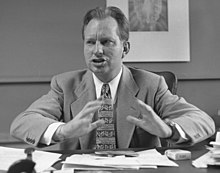
Scientology founder L. Ron Hubbard routinely referred to "space opera" in his teachings, drawing from science-fiction and weaving it into his origins of human history. In his writings, wherein thetans (roughly comparable to the concept of a human soul) were reincarnated periodically over quadrillions of years, retaining memories of prior lives, to which Hubbard attributed complex narratives about life throughout the universe. The most controversial of these myths is the story of Xenu, to whom Hubbard attributed responsibility for many of the world's problems.
Some space opera doctrines of Scientology are only provided by the church to experienced members, who church leaders maintain are the only ones able to correctly understand them. Several former members of the church have exposed these secret documents, leading to lengthy court battles with the church, which failed to keep the secret. Critics of the church have noted that some of the narratives are scientifically impossible, and have thus assailed the church as untrustworthy for teaching them. The space opera teachings have also been satirized in popular culture. Scholars of religion have described the space opera narratives as a creation myth designed to encourage reverence of Hubbard as a supreme messenger. Several academics have drawn attention to the similarity of the space opera myths to themes of the 1950s Cold War culture in which they were constructed.